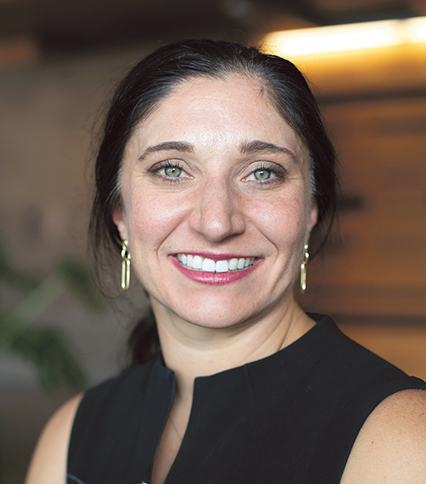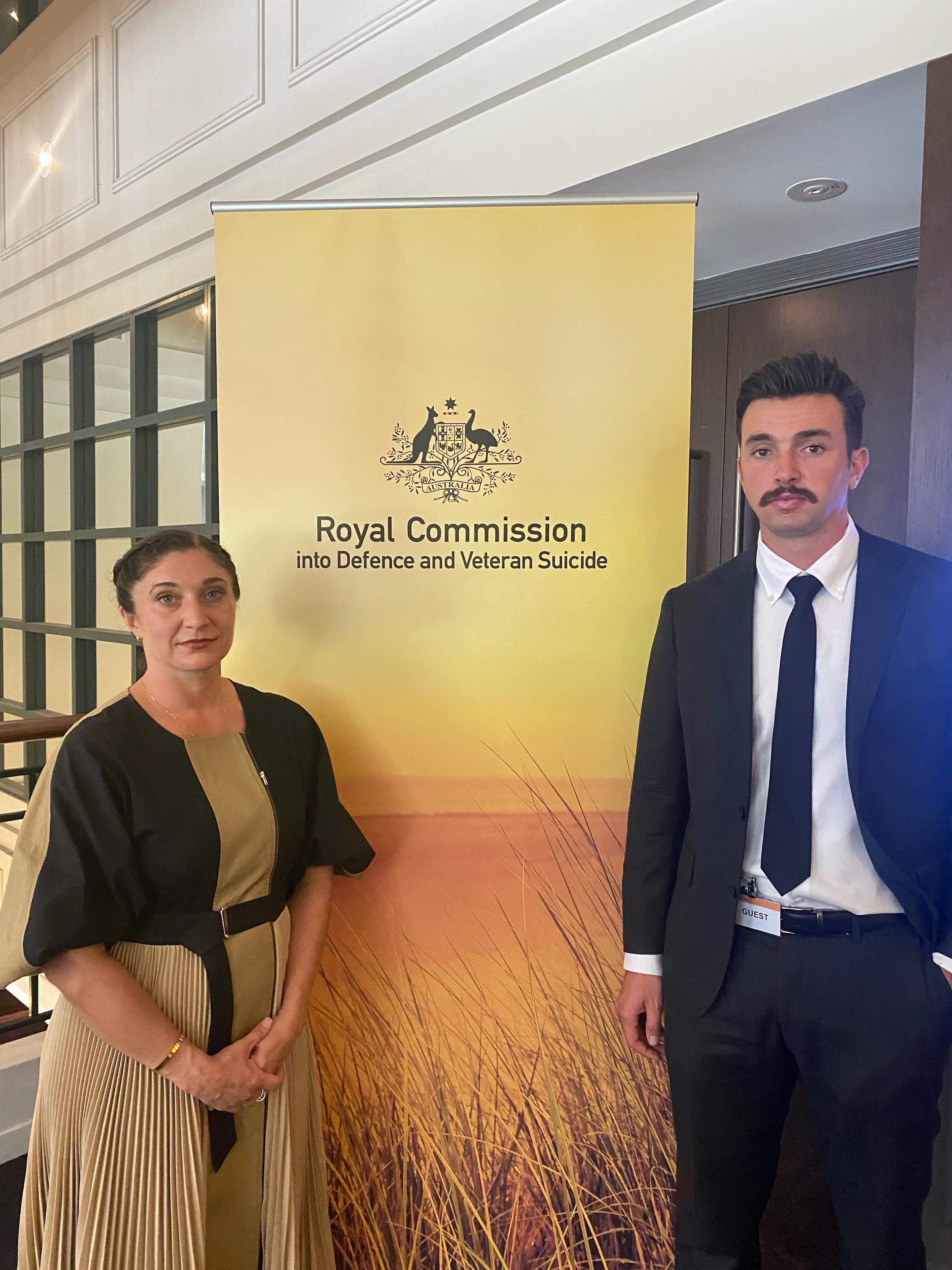My experience giving evidence to the Royal Commission
Commissioner Gwene Cherne
Veteran Family Advocate

In February, I was a witness at the Royal Commission into Defence and Veteran Suicide (RC). The RC is giving many in our community a national platform and allowing veterans and the families of veterans to have our voices heard – some for the first time.
My appearance was ultimately a healing process, but it was also an extremely painful one. While I knew it would be hard, I had no idea just how hard.
Being a lived-experience witness means I spent weeks writing about, and re-living, all the negative parts of my life with my late husband Pete. All the pain, suffering, violence and abuse. Laying out in 18 pages, every significant moment that we failed him, the system failed us or where interventions never came. I had to re-live and sift through it all to write about those moments that were significant enough to say here is where help would have made a difference.
For me, the process only brought up the bad and took me back to a very dark hole. I asked my family, friends and my work for help so that I could stay in that hole for as long as it took.
This time instead of fighting it, I let it all wash over me. I wasn’t afraid and just leant in to it. It doesn’t sound so bad the way I just put it, but it hurt so, so much.
I sat on my lawn and watched the clouds. I saw my therapist and began working through the book Reinventing Your Life. I learned about myself. I wrote letters to my younger self and then back again. I hid under a blanket and cried. I walked and rested. I meditated and wrote consistently in my gratitude journal. Every time I got angry – mostly with my children – I visualised the anger as an ice cube melting instead of feeling like it had to go somewhere or explode. I put on jammies that felt like a warm hug. I moved my home office so I don’t have to re-live the process every time I go to work. I hugged my kids and cried some more.
Some of that may sound silly to you. But all of it was me employing the tools that I have learned in and out of therapy over the last two decades. These tools meant that if I was patient with myself, let myself feel it all, and did the hard work, then I could stand up and climb out of that hole.
One day, after several weeks, my eldest son Tom and I for some unknown reason started telling stories about the good times with Pete, and the wound that had been ripped back open started to close. From there, I was able to climb out of that hole.
What I learned long ago – and it is evidence-based – is that emotions are like a tunnel and we are the train. We have to go through the tunnel from start to finish. If we break out of that tunnel too early before the body is fully done with that emotion, then – at some point – we have to go back into the tunnel and experience the rest of it, anything from tomorrow to ten years down the track.
Just what you wanted to read, right? I know this may sound crazy or too hard, but the next time you feel angry or sad, just sit in it. Don’t judge it or push it away. Be present, and wait and see what happens.
This is the stuff that saves me every day and makes sure I don’t continue the cycle of violence that I learned from my dad – who I loved so very much – with my own children. Intergenerational trauma is real, and we each have a role to play in showing our children there is another way.
For those who have or will share your own stories with the RC, you have my respect and love. You are brave. This goes for both lived-experience and professional witnesses.
Please take the time you need to process all that comes up and know your voice needs to be heard.
For those of you supporting others going through it – thank you and, please make sure that they have space, time, support and love around them. And make sure you do too; you will need it.
I see every day the incredible value of having lived-experience in our organisations and in leadership roles, but we also need to make sure there is space and support when it gets on top of us.
If this article raises issues for you, please contact: Open Arms – Veterans & Families Counselling, which offers free and confidential counselling to the veteran community on 1800 011 046. Safe Zone is available for current and former ADF personnel on 1800 142 072. Calls to Safe Zone are confidential and not recorded.

Gwen and her son Tom at the Royal Commission where she was a witness
